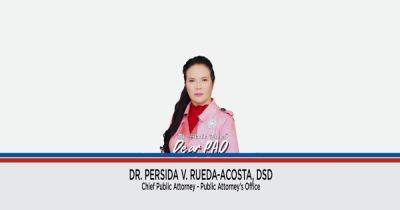Employer's liability for negligence of employee driver
Dear PAO,
My friend was about to leave his house for work when he was hit by the van of his neighbor, which was then driven by the latter's driver. According to my friend, he was stepping out of their gate when, all of a sudden, the van backed up and hit him, causing him to fall hard on the pavement and sustain injuries. The neighbors, who saw the whole incident, attest that the driver was negligent because, not only did he not signal when he was backing up, the backing maneuver was allegedly so abrupt that there was no way my friend could have foreseen or avoided it. Can my friend's neighbor be held accountable for the expenses incurred by my friend due to the injuries from the accident? His neighbor insists he is not liable because it was his employee who was driving the van at the time, not him. Isn't there a law that holds his neighbor liable for the negligence of his driver?
Angie
Dear Angie,
Each of us can be held accountable for our acts or omissions that cause injury to another party. This is true even if there exists no contractual relation between the parties involved in consonance with Article 2176 of the New Civil Code of the Philippines, which states that:
«Art. 2176. Whoever by act or omission causes damage to another, there being fault or negligence, is obliged to pay for the damage done. Such fault or negligence, if there is no pre-existing contractual relation between the parties, is called a quasi-delict and is governed by the provisions of this Chapter.»
What is more, a person can be held liable not only for their own acts or omissions, but also for those of persons for whom they are responsible. As in the case of employers, they may be held accountable for the acts or omissions of their employees, save in instances when they can prove that they exercised diligence to prevent the damage or injury. Article 2180 of the New Civil Code specifically mandates that:
Advertisement«Art. 2180. The obligation imposed by Article 2176 is demandable not only for one's own acts or omissions, but also for those of persons for whom one is responsible.x x x
»Employers shall be liable for the damages caused by their employees and household helpers acting within the





